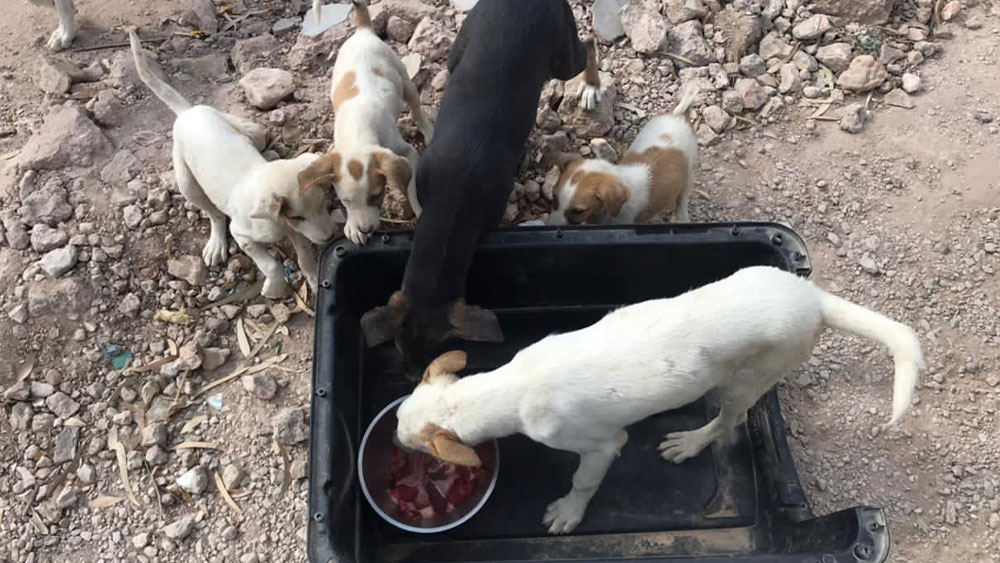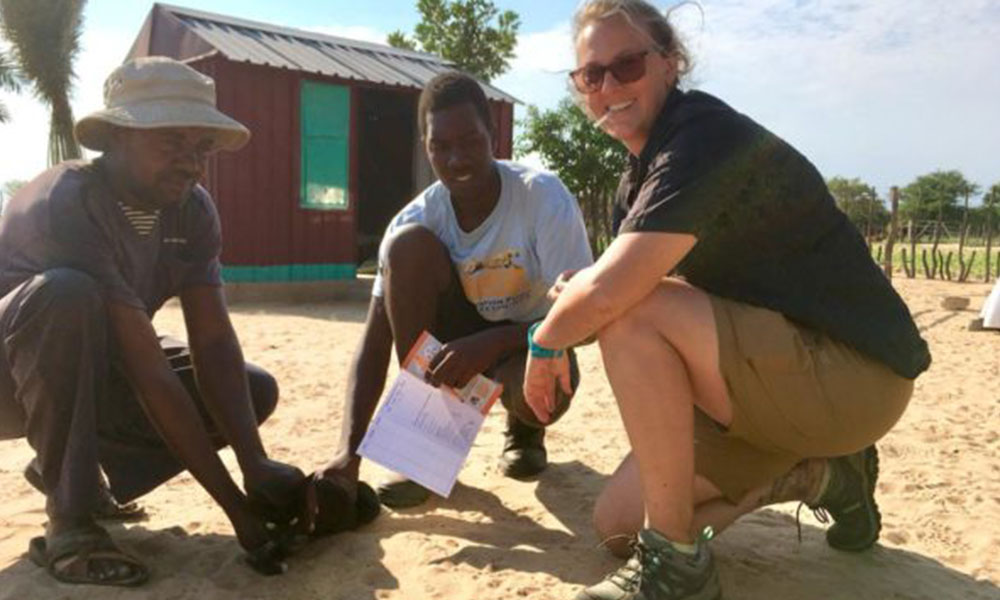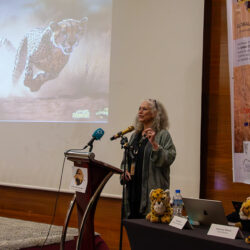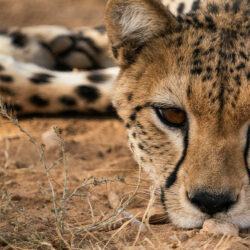One Health Initiative at CCF
-

- by Dr. Laurie Marker November 19, 2021

One Health is a collaborative, multisectoral, and transdisciplinary approach—working at the local, regional, national, and global levels—with the goal of achieving optimal health outcomes recognizing the interconnection between people, animals, plants, and their shared environment. – Centers for Disease Control and Prevention, National Center for Emerging and Zoonotic Infectious Diseases (NCEZID)
The World Health Organization (WHO) estimates that more than 200 million stray dogs worldwide and that every year, 55,000 people die from rabies. As defined by the World Health Organization – Rabies is a vaccine-preventable, zoonotic, viral disease. Once clinical symptoms appear, rabies is virtually 100% fatal. In up to 99% of cases, domestic dogs are responsible for rabies virus transmission to humans. Yet, rabies can affect both domestic and wild animals. It is spread to people and animals through bites or scratches, usually via saliva.
One Health at CCF
- CCF’s holistic approach to One Health is informed by its extensive research within the rural farming communities across the cheetah’s habitat.
- CCF’s education and conservation programs place a heavy emphasis on the economic stability of communities.
- One Health is a natural extension of CCF’s communal outreach efforts.
We have found that when the needs of people are taken into consideration, the conversation about saving wildlife becomes much easier. By delivering vaccinations to domestic dogs and cats we are able to provide a beneficial health service to people and also study the connection between vaccine delivery reduction of the spread of rabies in wildlife.
Good health plays a big part in the ability of people to manage their resources and gain economic advantage properly. In Namibia, the people are the custodians of the land through its unique series of conservancies. Thus, the ecosystem that the cheetah requires to survive is managed by the citizens of Namibia, and the primary profession of the people living in these areas is livestock farming.


Human-wildlife conflict is one of the threats to the cheetah’s survival, and it is most prevalent in areas where people’s livelihoods are impacted. To reduce human-wildlife conflict, CCF developed Future Farmers of Africa (FFA).
What is taught in FFA’s community-based workshops?
- Predator-friendly farming techniques that use non-lethal means to mitigate livestock losses.
- Livestock Management and Health training to develop the skills necessary to prevent injury and disease and to treat minor wounds.
- Diversification of income streams to help farmers extend the profitability of their holdings.
In Namibia, with support from Foundation for Human Rabies Education and Eradication (FHREE), CCF organized its first mobile vet clinic to jump start its One Health initiative. Over the course of the clinic’s first year in 2019, CCF veterinary staff provided rabies vaccinations for over 1,000 domesticated animals. During 2020, due to the restrictions on travel throughout Namibia, we vaccinated 143 domesticated animals. In 2021, we vaccinated 636. The animals were mostly pet cats and dogs.
The Okakarara Communal Conservancies are open landscapes, where domestic animals come into contact with wildlife. It is crucial that we implement best practices to reduce the spread of rabies.
We prioritized the area to begin our efforts in a “high human/wildlife conflict zone” defined by high chance of contact between domestic animals and wildlife in these areas.
During 2020 and 2021, physical distancing has impacted CCF’s ability to serve Namibia’s farming communities in and around the Greater Waterberg Landscape. As a result, we have taken shorter trips and performed limited range mobile clinics. The map above shows the areas we have visited.
In Somaliland, where the population of stray/street dogs is a particular problem, CCF’s vets expanded the delivery of rabies vaccinations to include a spay/neuter clinic.
Related Reading
-
February 7, 2024
Dr. Laurie Marker’s Opening Speech at the Global Cheetah Summit -
November 15, 2023
Double Your Gift – Home Range for the Holidays 2023



